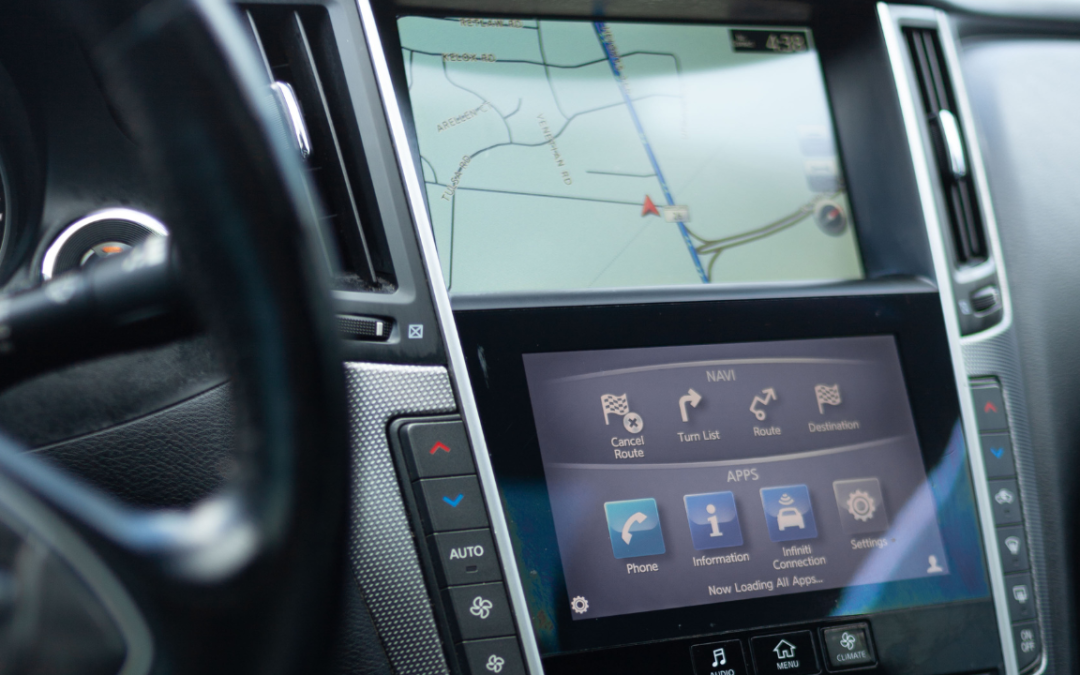In today’s advanced world, Apple CarPlay acts as a bridge between our cars and iPhones. This innovative system takes your everyday iPhone experience to your vehicle’s dashboard. It offers a range of features, such as Phone and Messaging, Maps and Navigation, Music and Audio, Siri Voice Control and Third-Party Apps. However, every technology has its shortcomings. In this article, we show Apple CarPlay’s complexity by discussing Pros and Cons of Apple CarPlay, helping you decide if it’s the right choice for your road connectivity needs.
Pros of Apple CarPlay
Effortless iPhone Integration
Apple CarPlay extends the capabilities of your iPhone to your vehicle’s infotainment system. It gives you access to several iPhone functions, like music, navigation, and texting, keeping you entertained and connected while you’re driving.
Ease of Use
CarPlay has a user-friendly interface. It mirrors the iOS interface users are already familiar with from their iPhones, making it easy to navigate and operate.
Voice Control with Siri
CarPlay presents hands-free operation for safer driving through Siri integration. You can make calls, send texts, and even control your music playlist using voice commands by Siri, keeping your hands on the wheel and your eyes on the road.
Hands-Free Operation
CarPlay supports Siri voice control, which allows you to control your iPhone hands-free, enabling safer driving. You can make calls, send texts, and even use navigation apps without taking your eyes off the road.
Access to Third-Party Apps
Apple CarPlay has a selection using apps Third-Party Apps. It supports a variety of third-party apps, including popular music apps like Spotify, messaging apps like WhatsApp and navigation apps like Google Maps and Waze.
Enhanced Navigation
Apple Maps provides great navigation with real-time traffic updates. It suggests the fastest routes based on current traffic conditions, helping to save you time and fuel.
Regular Updates
Apple CarPlay takes continuous updates like other Apple products that add new features, improve existing ones, and fix bugs if any. This ensures that the system stays modern and continually improves.
Compatibility and Consistency
CarPlay is compatible with a wide range of car models, from economical to luxury vehicles. Its consistent interface across all vehicles provides users with a familiar and easy-to-navigate display.
Data Privacy
Apple is strongly committed to user privacy, which extends to CarPlay. Personal data, like your messages or call history, don’t get stored on the car’s system.
Music and Audiobook Integration
Apple CarPlay adjusts with Apple Music, podcasts, and audiobooks, giving you many entertainment options for road trips. You may also use third-party apps for entertainment.
Cons of Apple CarPlay
Limited App Support
Though CarPlay supports a selection of third-party apps like Spotify and WhatsApp, its app support is limited compared to what you have on your iPhone. Some users might find their favourite apps missing.
Dependence on iPhone
Without an iPhone, Apple CarPlay is essentially useless. This is a significant drawback for households or users who do not primarily use iPhones.
Potential Connectivity Issues
While Apple CarPlay is generally reliable, users have reported occasional connectivity issues. This can cause disruptions in service and functionality.
Limited Customizability
Compared to some native infotainment systems, CarPlay offers limited customizability. The interface is standardized across all vehicles and lacks the ability for users to change themes or layouts.
Data Usage
While using navigation and streaming services, CarPlay can consume a significant amount of mobile data. This can lead to increased data charges if you don’t have an unlimited data plan.
Battery Drain
Although CarPlay charges your iPhone when connected via a Lightning cable, it can drain the battery quickly when used wirelessly. Prolonged use may require you to charge your iPhone more frequently.

